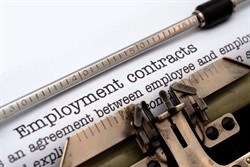
Top stories






More news


Marketing & Media
Ads are coming to AI. Does that really have to be such a bad thing?














The controversial s33A prohibits certain conduct by employers. Section 33A(1)(a) states that an employer must not require or accept any payment from an employee or potential employee for employment or work allocation. Further, in terms of s33A(1)(b), an employer must not require an employee or potential employee to purchase any goods, products or services from the employer or from any business or person nominated by the employer.
This section heavily impacts on airlines, security companies, retail companies and the food industry. Employers, who require their employees to buy or contribute towards their uniforms, are now precluded from such conduct, since an employer is prohibited from accepting money from their employees and from requiring them to buy goods from the company or any other party nominated by the employer.
There are potential problems that can arise from this section. Firstly, there is the reality that employers will be forced to provide uniforms to employees who sell their uniform and claim that it has been lost. Secondly, it is argued that this provision has unintended consequences. Since it prohibits employees buying goods and services from the employers, it is submitted that the employer's provision of mandatory retirement or healthcare may fall foul of this section. Thus the onus is on the employer to show that these schemes fall within the exception.
With that said, s33A(2) does not preclude an employment contract or collective agreement in which an employee is required to participate in a scheme involving the purchase of specific goods, products or services if:
Therefore, an employer can safeguard himself by ensuring that his actions are justified in terms of s33A(2). Employers are encouraged to consider their policies and determine whether they fall foul of s33A of the BCEA.